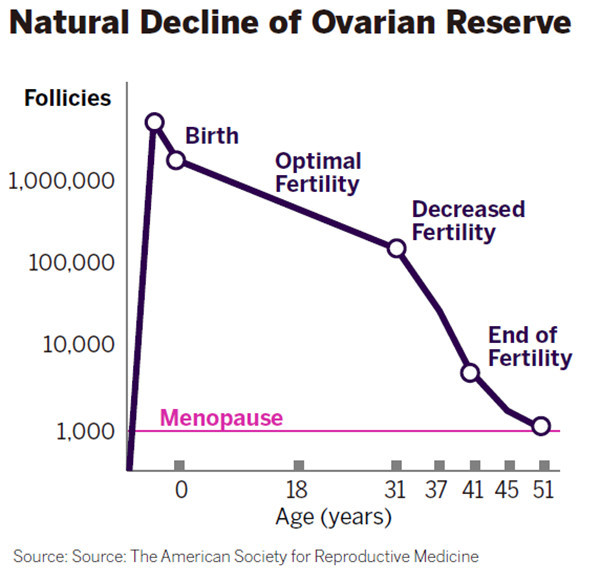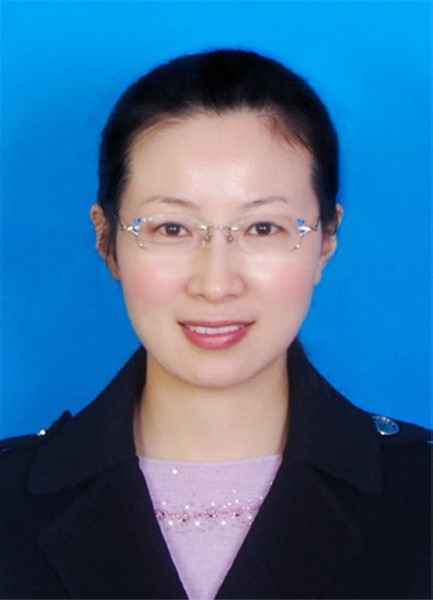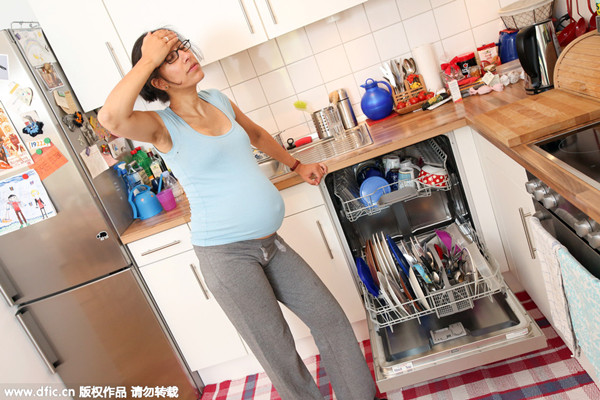
31 Jul, 2015
Professional women should give birth at younger age: Chinese physician advises
By Zhang Qiaoli
Beijing, (chinadaily.com.cn) 2015-07-28 – Women should strive to balance quality of work and life, and have children at a young age. As a doctor I see much suffering because of this imbalance.
Xiao Ying, 36, works for a large law firm. Her job means lots of travel, a heavy caseload and a large number of meetings, so her schedule is hectic.She has been pregnant twice, but had abortions on both occasions because she felt her busy, high-pressure career wasn’t conducive to raising a child. She planned to have children once she had achieved career success so she could provide a stable environment for her baby.
After 10 years, Xiao felt the time was right, and she tried to conceive for about six months, but was unable to become pregnant. I conducted comprehensive physical checkups. The results suggested that Xiao’s ovarian function has declined and a bilateral oviduct blockage has occurred, meaning that in vitro fertilization is her only option.
So, after reducing her workload, Xiao underwent IVF treatment. Luckily, she got pregnant after just one treatment cycle, but later experienced vaginal bleeding, and rushed to the hospital. I told her to rest and carry on with the treatment (to prevent a miscarriage).
 |
The bleeding ceased after a month of continuous treatment, and Xiao returned to work.
Seven months into the pregnancy, she displayed symptoms of dizziness, lower limb edema and high blood pressure.
She was diagnosed with pregnancy-induced hypertension syndrome. After two months of hospital treatment, Xiao had a daughter by cesarean section.
The couple finally breathed a sigh of relief. A review of Xiao’s pregnancy indicates that it was full of frustrations, disappointments and alarming health issues because she had delayed childbirth.
For the last four decades, Chinese women have been having their first babies later than ever before. However, Xiao’s story suggests that pregnancy in older women endangers both mother and child. Women aged in their ’20s and early ’30s are most likely to conceive, but after 35, the ability to conceive declines for most women, and it’s generally agreed that the ability to conceive declines with age.
Older women are prone to a decline in ovarian function, so they should understand that if they delay childbirth, there’s a very real possibility that they may need to turn to artificial reproductive technology for help — they may even have no option but IVF, which isn’t an easy thing to go through, has a low success rate and high procedural costs.
 The writer Zhang Qiaoli is a Beijing-based physician. [Photo provided to chinadaily.com.cn] |
Births to older women, especially 40 and older, are associated with higher health risks for both mother and child, and pregnancies among women older than 35 are referred to as “advanced maternal age”.
Pregnant older women are also at greater risk of complications, such as abortion, embryonic death, diabetes, fetal-growth restriction, high blood pressure or heart disease.
They also have a higher risk of pre-eclampsia, a condition characterized by high blood pressure and protein in the urine. The number of older women having cesarean section is also rising, as a result of potential labor difficulties.
A systematic review of studies dealing with the effect of maternal age on baby health outcomes found that the risk of stillbirth increases with advanced maternal age. The age of the mother is also a risk factor for birth defects and other developmental disorders. Down Syndrome is the most common birth defect. The postpartum recovery of older women is slower than that of younger females.
The age of the father is being increasingly discussed as a contributory factor, too. Men older than 40 also have lower fertility, and their children are likely to have more complications.




Liked this article? Share it!